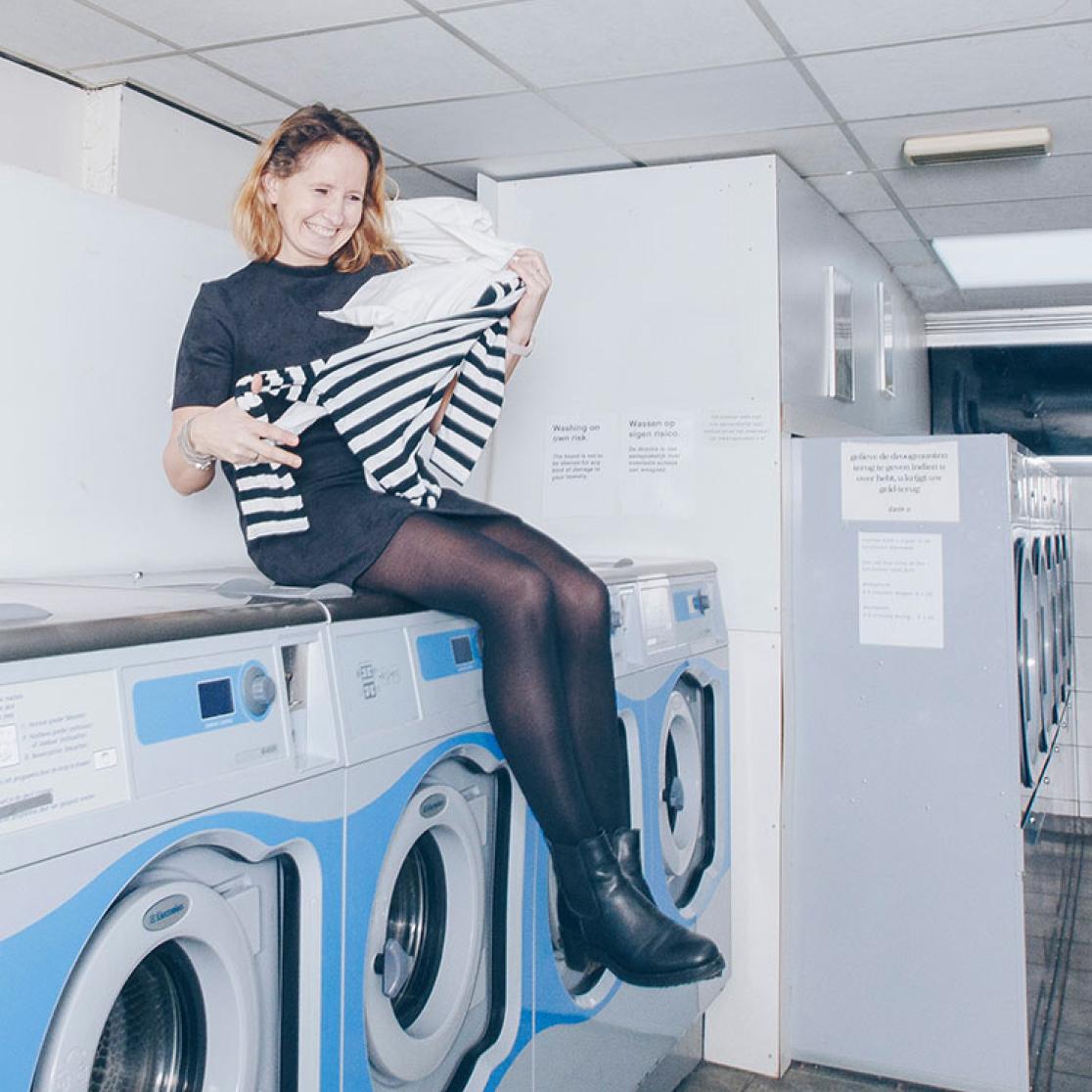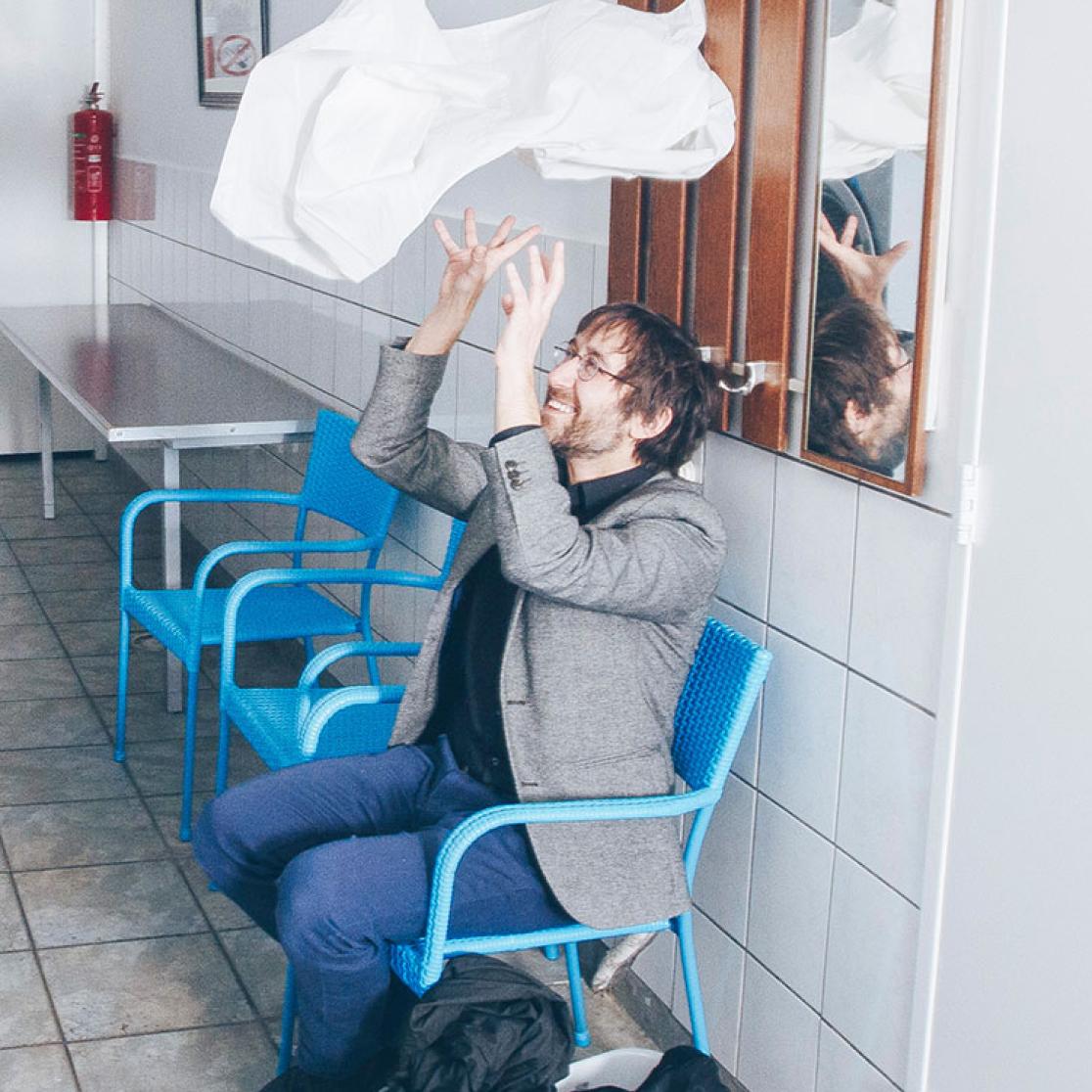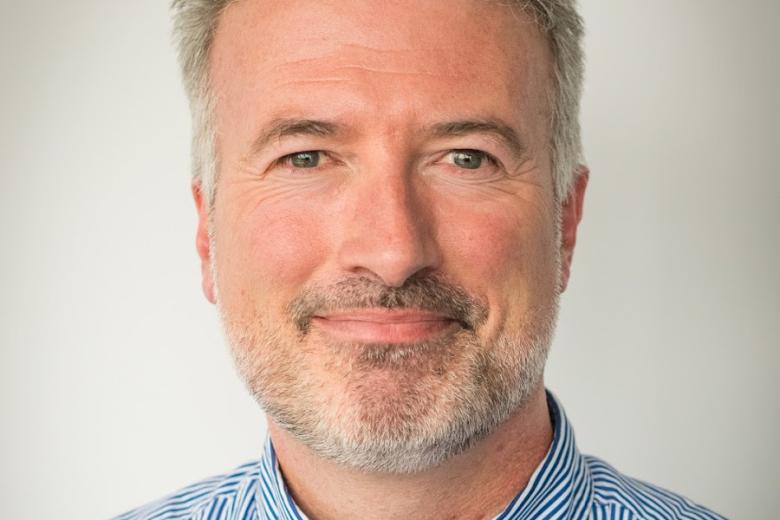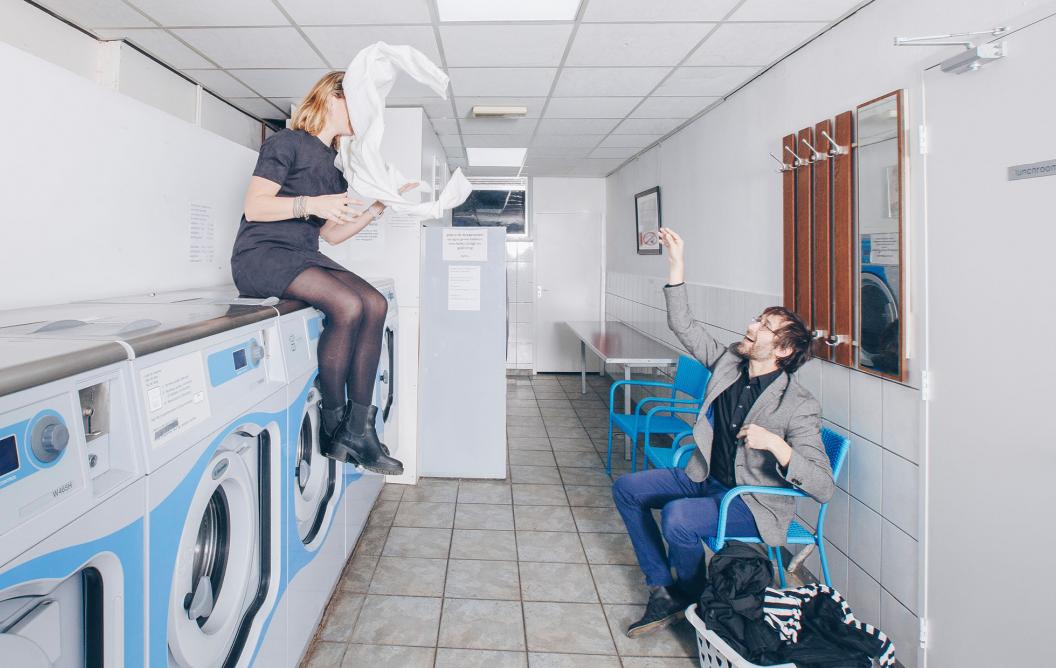Small change, big impact
Can you reduce the room temperature of your home and still feel comfortable? Can you keep up the habit of doing fewer loads of laundry? Yes and yes, according to the findings of the ENERGISE project, which challenged 300 households in eight countries to reduce their energy consumption. The Maastricht Sustainability Institute (MSI), a research institute for sustainable development, coordinated the Dutch part of the project. “Energy reduction is only permanent when it becomes a new habit”, say researchers Véronique Vasseur and Christian Scholl.
How many times do you wear a jumper before washing it? What temperature do you like your home to be? These are seemingly innocent questions, but behind them lurk social norms, more or less rigid ideas about matters such as personal hygiene and hospitality. In the ENERGISE project (the European Network for Research, Good Practice and Innovation for Sustainable Energy), energy consumption, but also the will and ability to achieve sustainable energy savings, are viewed as social practices. So the goal was not only to reduce energy consumption, explains Scholl. “We wanted to teach people to feel comfortable with a new situation.”
ENERGISE was funded by Horizon 2020, the European grants programme for research and innovation. The project used a research method known as “living labs”, in which research subjects actively participate and come up with their own solutions. Sixteen labs were established in eight countries, covering a total of 300 households. In the Netherlands, 20 individual households (“home labs”) were recruited in Maastricht and 14 in Roermond, with on average slightly older people living in apartment buildings.
Laundry loads
The participants charted their laundry habits and temperature control using measuring devices, diaries and questionnaires. “That was quite unique”, says Vasseur. “You’re asking people to be guinea pigs in their own homes.” Next, the participants were challenged to lower the temperature of their living rooms and bedrooms for four weeks and to do fewer loads of laundry.
The results have since been published. In all 16 labs, the majority of households reduced the indoor temperature by at least one degree Celsius, amounting to an annual energy saving of 6 percent. They also did one load of laundry fewer per week. Scaled up to all Dutch households, this represents an annual saving of 20.6 million cubic metres of water (almost 8000 Olympic swimming pools) and 15 million litres of laundry products, plus energy savings equivalent to the annual consumption of 140,000 households. In short: small behavioural changes can lead to significant energy savings.
Homely feeling
The cultural differences between the participating countries were striking. Take the average home temperature. Scholl: “In the Netherlands it’s around 20 degrees, but in Hungary it’s 24 degrees. There, feeling at home means having few clothes on.” Gender differences also played a role, Vasseur says. “In the Netherlands and England, it’s often the woman who determines what a pleasant temperature is; in the other countries, it’s usually the man. In Hungary more than 90 percent of the women are responsible for the laundry, whereas this share is declining in the Netherlands.” There are also indications that a sense of group belonging encourages more energy-efficient behaviour.
Participants were primed to be more energy-conscious, Vasseur adds. “They stopped throwing a jumper in the wash automatically, and started asking the question: does it smell or not?” They also gained a better understanding of how heating systems work. “They began to see the body as a source of heat. That was also one of our slogans: keep your body warm, not the space.”

Véronique Vasseur is a researcher and lecturer at the Maastricht Sustainability Institute. After studying Science and Innovation Management in Utrecht, she obtained her PhD in Maastricht on the role of government and users in the spread of solar energy in the Netherlands. Over the last five years her research has focused on energy consumption, behavioural change, living labs and innovative theoretical frameworks.
New habit
The most important finding was that households did not experience more inconvenience or less comfort while reducing their energy consumption. “So you can teach people new norms in their everyday lives. Then they’re more likely to look for other solutions before they turn up the heating. Shouldn’t the couch be closer to the radiator than to the window? Within four weeks the energy reduction had become a habit”, Scholl says. Vasseur emphasises the permanence of the behavioural change. “After three months, we monitored the households again and saw that they had assimilated the new norms and values.” Cultural change, in other words, is the key to a successful energy transition.
ENERGISE further demonstrates that the living lab is a suitable research method for fostering energy reduction. “There were clear objectives and the participants were given complete freedom in how to reach them. In living labs, it’s the participants themselves who design their own solutions”, Scholl says. Although it does require a special attitude of the researcher, says Vasseur. “You build a closer relationship, adopt the role of listener.” Scholl: “It’s an important lesson: behavioural change arises from everyday life, and is only permanent if you give people the time and space to experiment.”
Rediscovering home
Have the researchers changed their own habits? Vasseur: “I was shocked that one drying cycle uses the same amount of energy as four washes. These days I rarely use the dryer; I hang up the laundry instead.” Scholl: “What’s great about a project like this is that you start questioning your own household. Should we change the light? What is it that really makes you feel at home? When it comes to energy issues, you’re constantly rediscovering your house.”

Christian Scholl is a researcher and lecturer at the Maastricht Sustainability Institute, specialising in urban sustainability and cooperative forms of governance. His latest research focuses on urban labs, experimental forms of governance and collective learning. He coordinates the experimental city lab project TEK4Labs, funded by the NWO’s SURF programme.
Also read
-
Empowering Smallholder Farmers in the Data Economy: Unlocking Opportunities and Overcoming Obstacles
Frederik Claasen, the head of policy at our partner organisation Solidaridad Network on the opportunities and obstacles facing smallholder farmers in their data ecosystems.

-
The last 'nerve doctor' in the Netherlands
Frans Verhey, professor of Geriatric Psychiatry and Neuropsychiatry is proud of what the Limburg Alzheimer’s Centre has achieved and of its team, which works tirelessly to improve the quality of life of people with Alzheimer’s. “Alzheimer’s tends to be seen as a horrible, deadly brain disease that...

-
The scientist, the chef and her passions
Anne Roefs was awarded a Vici grant of €1.5 million. The professor of Psychology and Neuroscience of Abnormal Eating, was tossing up between a career as a scientist or a top chef.

